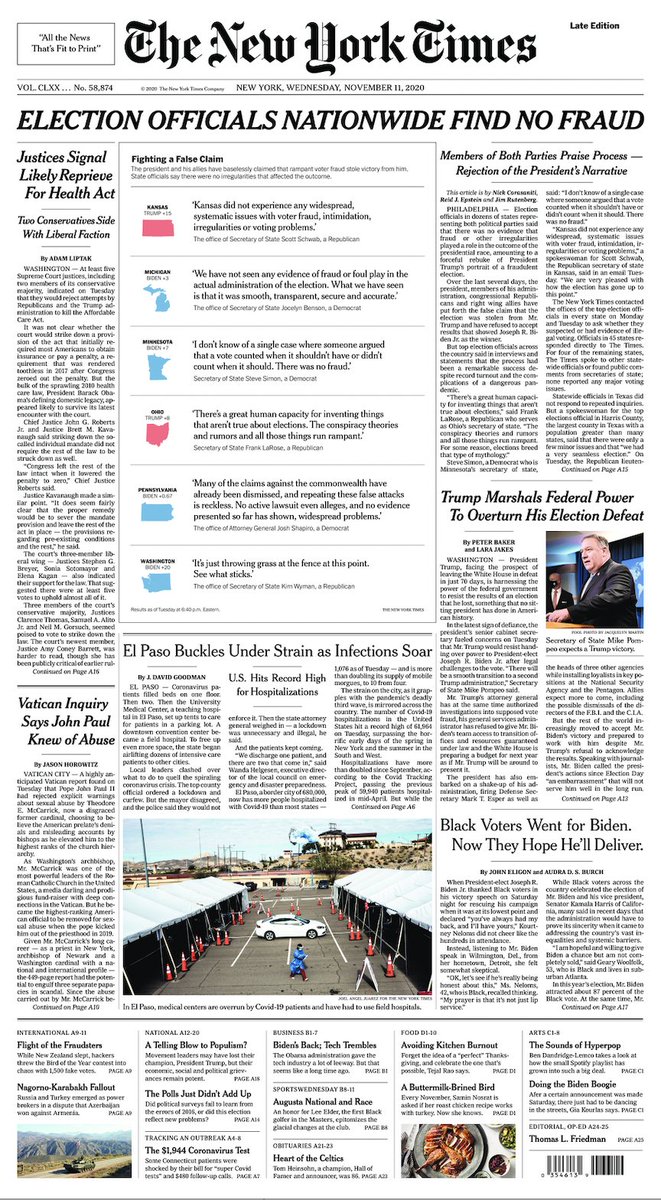
The mass resignation of Hong Kong’s pro-democracy lawmakers this week — after Beijing forced the removal of four opposition lawmakers — left the city with no opposition in one of its last bastions of legal dissent.
Here's a timeline of how we got here. nyti.ms/38F2krm
Here's a timeline of how we got here. nyti.ms/38F2krm
In May 2019, Hong Kong lawmakers clashed over a bill that would allow extraditions to mainland China. In the months that followed, street clashes became routine between the police and black-clad protesters. nyti.ms/36yXfxM
In September 2019, the protest movement claimed a major success: Hong Kong’s leader, Carrie Lam, withdrew the extradition bill. The concession did not end the protests, though, and some began getting more intense in their attempts to protect their rights. nyti.ms/2JSNHpN
The movement earned another stunning victory in November of 2019 as pro-democracy candidates captured most of the seats in district elections. It was a vivid expression of defiance toward, and anger with, Beijing and its allies in Hong Kong’s leadership. nyti.ms/3eWjd1u
After the win, a lull in protests set in for weeks. Then the pandemic took even more steam out of the movement as people socially distanced. The city's government said the virus meant that the legislative election would need to be postponed by a year. nyti.ms/32GZ6zB
After a year of protests, and opposition election victories, Beijing had had enough. In late June 2020, the mainland government imposed an ominously vague and far-reaching national security bill on Hong Kong that targeted dissent and protest. nyti.ms/3eVXTJS
The national security law instantly altered the lives and liberties of Hong Kong’s residents, criminalizing words and images that just hours earlier had been legally protected free speech. There are some things you can no longer freely say in Hong Kong. nyti.ms/3poS7Fi
More than two dozen people have since been arrested under the national security law. Most prominent among them was Jimmy Lai, founder of the city’s biggest pro-democracy newspaper, Apple Daily. nyti.ms/32F45AM
This week, Beijing officials went even further, granting the Hong Kong government power to remove lawmakers from office who do not show clear loyalty to China. The remaining 15 members of their bloc then said they were stepping down in solidarity. nyti.ms/3ksqp6X
Their departures will leave the political opposition without a voice in the Hong Kong legislature, which had stood as a symbol of the “one country, two systems” framework intended to keep Hong Kong semiautonomous until 2047. nyti.ms/3ksqp6X
Now, it’s unclear what avenues of resistance remain for pro-democracy Hong Kongers. Carrie Lam, the city’s chief executive, said on Wednesday that the government felt “all the more excited” that its bills could be passed efficiently. nyti.ms/3njHHVI
The pro-Beijing lawmakers were already preparing which policies to fast-track. The imbalance made it all but certain that the government could push through contentious proposals, such as voting rights for Hong Kong residents in mainland China. nyti.ms/32He6xk
• • •
Missing some Tweet in this thread? You can try to
force a refresh











